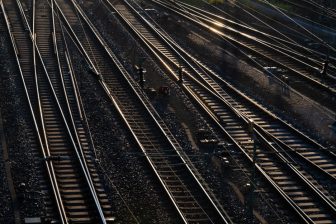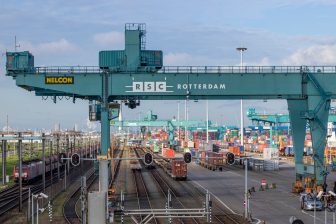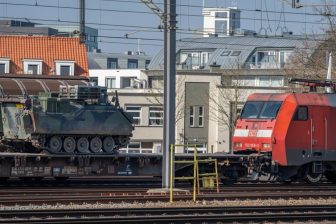No extra support for ERTMS transition in the Netherlands
Rail freight carriers in the Netherlands will not be provided with an extra subsidy to convert trains to ERTMS. Dutch secretary of state Stientje van Veldhoven said that on Thursday, in response to questions from the House of Representatives. The announcement is a thorn in the eye of the rail freight sector, which labelled the decision as a ‘reverse modal shift’.
The roll-out of the ERTMS system in the Netherlands requires a contribution of the industry totalling 90 million Euros. It also includes a CEF subsidie (EU fund) of 36 million Euros. However, rail freight operators state that they do not have the capacity to make a contribution of their own and want the ministry to pay for the total costs of the conversion. They also argue that the actual amount required is much higher than the 90 million Euros calculated by the ministry.
Reverse modal shift
PVV member of chamber Roy van Aalst, who posed the questions to the state secretary argued: “The rail freight operators indicate that they cannot bear these costs. These transporters will soon disappear from the railways and this state secretary will be responsible for a reverse modal shift.”
According to Railgood lobbyist Hans-Willem vroon, who represents the rail freight carriers in the Netherlands, the actual costs of transforming the current fleet to the ERTMS programme come down to 300 million or more. “We are talking about 250,000 to 600,000 Euros per locomotive, while there is no return of profits for rail freight carriers for the next fifteen years.
Van Veldhoven indicated during the debate that she is “at a maximum” of the contribution to the costs of the conversion, because European rules do not allow the full amount to be reimbursed. The EU would not allow unlawful state aid, she said, adding that rail freight operators are already financially supported with the rail freight package of measures. “We see the conversion to ERTMS as part of this package of measures. With this package we wanted to achieve that there is room for investments in ERTMS.”
Measure package
In the rail freight transport package of measures, the Ministry has made agreements with the sector to improve the competitive position of rail freight transport. Part of this is that, until 2023, the ministry will make available an additional 12 to 14 million Euros annually to reduce the track access charges for rail freight operators.
“What we do is more than what other European countries around us do. Nothing is reimbursed at all in Belgium”, she commented during the parliamentary debate. According to Vroon, the decision puts the industry under severe pressure. “The ministry is leaving the industry in the cold. The inevitable reversed modal shift must be avoided.”





